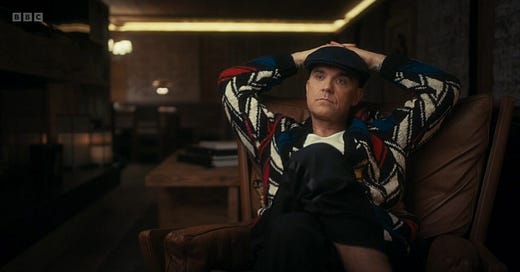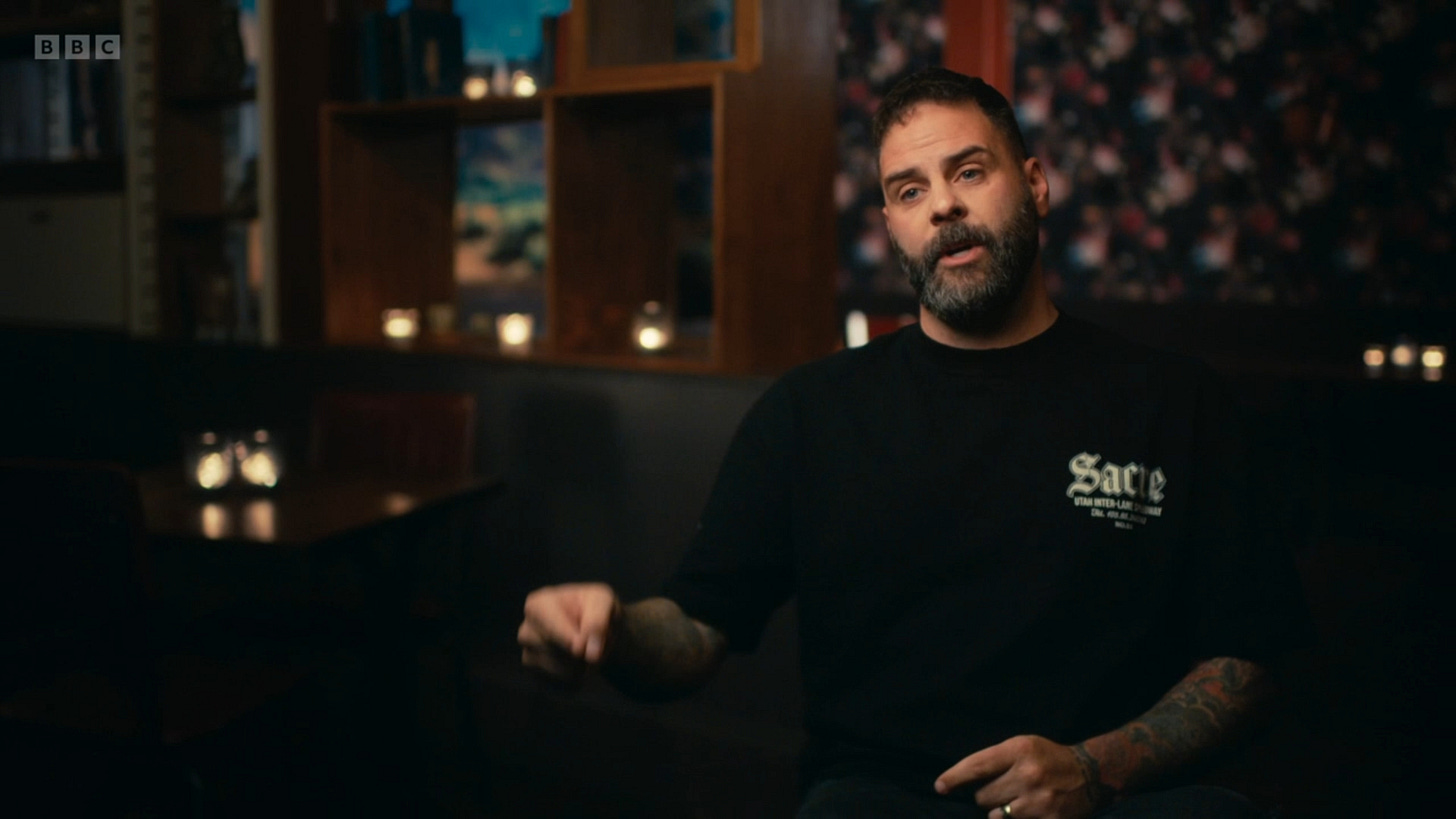Pop music of the 90s and 00s is an enduring fascination of mine, so of course I had to check out the BBC’s recent documentary, Boybands Forever.
–
There was a time when a documentary looking back at 90s boybands might reasonably have been expected to be a bit of light-hearted fun: look at the outfits, wasn’t our hair silly, it was all great but it had to end sometime, etc.
Boybands Forever, though, begins with blurry mobile footage, taken in 2015, of the ex-East 17 singer Brian Harvey smashing a display of his platinum discs against a wall while making general declarations of exasperation: ‘That’s what I think of your f**king music industry.’
Harvey hasn’t been interviewed for the documentary, but his sentiments appear to be shared by a majority of those featured, with the intervening years apparently converting a succession of happy-go-lucky, ambitious kids into slightly haunted looking middle-aged men who’ve probably had a lot of therapy. The realities of pop music back then, for those involved, were a bit grim: a tale of hard work, high pressure and little money, all in the service of making someone else rich.
Those someone elses do also crop up, often — whether by accident or design — looking like twisted supervillains: Simon Cowell smirking behind a cup of coffee while lounging in the sun, and Louis Walsh resembling a basement-dwelling mad scientist. The only featured star to rival their success is Robbie Williams, who does a little bit of metaphorical moustache twizzling of his own from his remote base in Switzerland.
While Take That’s supposed North vs South,1 clean-cut vs bit-of-rough pop battle with East 17 is a focus of the first episode, and there’s some acknowledgement of the Gary Barlow/Williams tensions within the band (as well as some chortle-worthy archival footage of the former that doesn’t show him in the best light), this is really a story of talent vs management, and in this case, of Williams vs Nigel Martin-Smith, former manager of Take That, who also features heavily.
Appearing with some apparent reluctance, Martin-Smith seems caught between trying to tell his side of the story and being resigned to the fact that this is a PR war he already lost, many years ago:
‘He’s clever, isn’t he, [Robbie]? It’s my fault because part of the thing we discussed was about them telling stories. Robbie’s brilliant at it. “That evil twat Nigel… it’s his fault that I’m behaving like a wanker.”’
Martin-Smith’s view reflects those of the wider public at the time: that pop stars were grown adults responsible for their own behaviour. And it certainly isn’t a stretch to imagine that some, if not all, of them may have acted without honour on occasion. At the same time, it’s all too easy to forget how young Williams was back then: he was 16 when he joined Take That, and 21 when he left.
Despite some prodding from an off-camera voice, any chances of a rapprochement appear remote (‘Nobody’s the villain in their own story… I understand why he wouldn’t recognise himself in my story’ is the closest Robbie comes to thawing) and, with the famous trip to Glastonbury to hang out with Oasis, Williams’ boyband days are soon done and dusted.
But as the tales of similarly starry-eyed young men with less successful careers behind them start to stack up, it’s hard not to side with them against the likes of Cowell and Walsh, who offer little more than a shrug and a declaration that everyone knew what they were letting themselves in for.
Still, both come across rather better than former News of the World journalist Paul McMullan, who actively revels in the role tabloids played in fuelling the frenzy and paranoia surrounding boybands and their members, and shows little evidence of regret.2
As the series continues through the 90s and beyond, focus shifts to the likes of 911, Damage, Blue and (in particular) Five, put together by one-time Spice Girls manager Chris Herbert.3
Herbert had once put his newly-formed girl band into a house to live together and get to know each other, and so he did the same with Five. With young men being how they are, though, they soon ended up on the ITV show Neighbours from Hell, a move enthusiastically sponsored by Herbert and Simon Cowell as helpful in developing the edgier image the band were trying to cultivate.
Alas, two of the three members of Five who appear — Sean Conlon and Scott Robinson — seem to be among the most traumatized by their 90s memories. It isn’t particularly dwelled on here, but as the band started to come apart at the seams, Conlon was absent — ill — and replaced by a cardboard cut-out during promotion for their third album Kingsize, including on the video for opening single ‘Let’s Dance’. (The illness, said at the time to be glandular fever, was, of course, a stress-induced breakdown).
While other issues — the challenges faced by Damage as black men in a white industry, Duncan from Blue’s struggles with his sexuality, Brian McFadden’s decision to walk away and focus on his young family — are touched upon, the main through line is a story of youngsters plucked from obscurity and being worked like dogs until they could take it no more.
Pop promotion, in a pre-internet age, involved constant travelling and saying yes to everything.4 If boybands were lucky enough to find fame, fortune rarely followed, and many simply quit, exhausted, only to find they’d earned very little to take forward into the rest of their adult lives, other than a few mental scars.
Lighter moments, including much discussion of the actual music, are in fairly short supply. And this is a journey that eventually ends up at a destination called Westlife, who, however much you might want to celebrate the pop music of this era, arguably represent the most cynical, thoroughly processed, minimum food content version of the boyband concept.5
In the end, Boybands Forever is left grasping somewhat for a vaguely positive conclusion: the 00s Take That reunion, and the temporary return of Williams, has to do a lot of the heavy lifting. Otherwise, you’ve got the news that Five have started performing together again, and John from East 17’s declaration that he really doesn’t have any regrets, even though he’s since had to go back to working as a roofer.
Still, despite the general lack of celebration, Boybands Forever just about avoids leaning too far into the heavy, serious stuff and remains compelling viewing for fans of this era of pop music, even if your fandom doesn’t quite stretch to ‘phoning a helpline when Take That broke up’ levels.
If you want to remember some of the tunes, though, you might want to switch over to the 90s repeats of Top of the Pops currently airing on a Friday night (and available for an all-too-brief period on the iPlayer).
Not to be confused with the band North & South, who had a hit with ‘I’m a Man Not a Boy’ in 1997, also featured here (briefly) as one of the boybands that didn’t take off. Like S Club 7, their pop career was supposed to be a spin-off from a TV show on CBBC, No Sweat, in which they played a version of themselves.
Close watchers of the phone hacking scandal and the Leveson enquiry may already be familiar with McMullan: for those who aren’t, his Wikipedia page somehow paints a picture of an even worse person than his appearance here suggests.
It could be argued that the origins of the Spice Girls were as a female version of 90s boybands; that their subsequent success caused a rush to create a male equivalent does seem illustrative of the kind of circular, self-eating processes indulged in by the music industry at the time. Unfortunately Five never quite reached a level of fame sufficient to subsequently inspire a management company to create a female version of the ‘Spice Boys’.
This is also a recurring theme in Reach for the Stars: 1996–2006: Fame, Fallout and Pop’s Final Party, an excellent book by Michael Cragg, who features briefly as a talking head here.
They’re largely absent from the documentary, represented only by McFadden — who appears game, except for talking about ex-wife Kerry Katona — and former manager Walsh. As are Boyzone, who made their own documentary, No Matter What, which aired on Sky earlier this year.





